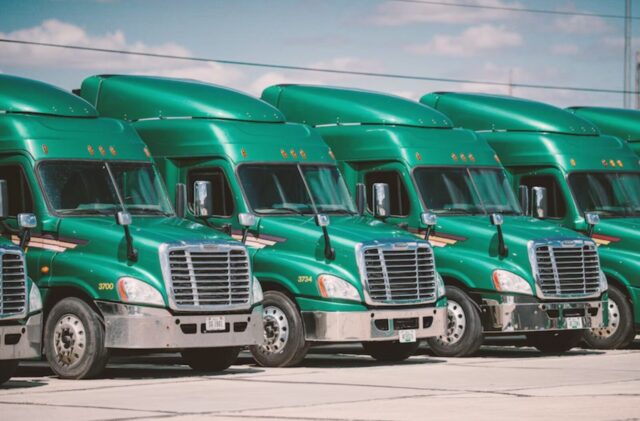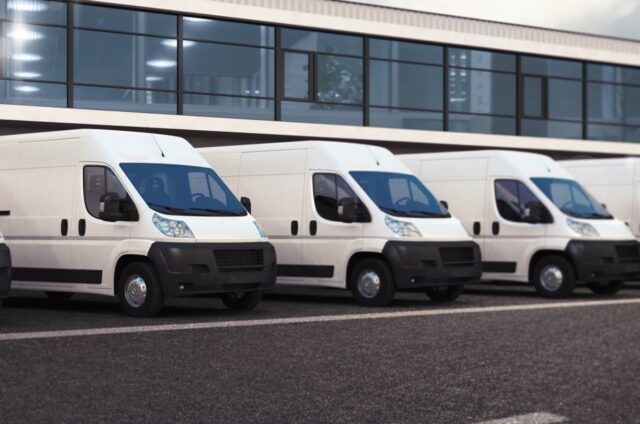
Commercial transportation is a vital aspect of the modern economy. From transporting goods across the country to providing transportation services to people, commercial transportation businesses play a critical role in facilitating commerce and connecting people.
Many hazards that the commercial transportation sector confronts might cause fleet owners to suffer large financial losses. Accidents, theft, and other unexpected events are just a few examples of the potential hazards that can arise.
In fact, the United States Department of Transportation reports that there are more than 500,000 truck accidents each year, highlighting the need for fleet owners to take proactive steps to manage these risks.
Commercial transportation companies must have the appropriate insurance coverage in place to reduce these risks. In this article, we will explore the coverage options available to fleet owners and considerations to keep in mind when choosing commercial transportation insurance, and we will provide an overview of the different types of coverage.

Coverage Options for Fleet Owners
1. Auto Liability Insurance: Auto liability insurance is one of the most important types of commercial transportation insurance that fleet owners should consider. According to a 2022 post on usnews.com, having some form of auto liability insurance is typically a requirement for drivers in the United States, although the specific type and amount required may differ from one state to another.
Auto liability insurance protects your company against exorbitant legal costs and damages by providing coverage for bodily injury and property damage liability. Fleet owners should think about the coverage limitations and deductibles when selecting motor liability insurance.
While smaller deductibles and greater limits might offer better protection, they can also result in higher rates. Fleet owners should also consider whether they need additional coverage beyond what is required by state law, such as uninsured or underinsured motorist coverage.
2. Physical Damage Coverage: Physical damage coverage is another important type of commercial transportation insurance that protects your fleet vehicles against physical damage, including collisions, theft, and vandalism. This coverage is especially important for fleet owners who rely on their vehicles to generate income.
Fleet owners should consider the value of their vehicles when choosing physical damage coverage. Higher-value vehicles may require higher limits or additional coverage options. Fleet owners should also consider whether they need additional coverage options beyond the standard policy, such as glass coverage or rental reimbursement.
3. Cargo Insurance: Cargo insurance is a critical type of coverage for fleet owners who transport goods. This coverage protects the goods being transported by your fleet against damage, theft, or loss. Cargo insurance can cover a range of risks, including theft, damage from accidents or weather events, and other types of loss.
According to a report published by MMR, the Cargo Transportation Insurance Market has been valued at a staggering US$ 53 billion in 2021. According to the analysis, between 2022 and 2029, this market is predicted to expand at a CAGR of about 3%.
The growing demand for cargo transportation services across the globe is one of the primary drivers of this market growth.
When choosing cargo insurance, fleet owners should consider the value of the cargo being transported, as well as any exclusions or limitations in the policy. Fleet owners should also consider whether they need additional coverage options, such as refrigeration breakdown coverage or contamination coverage.

4. Workers’ Compensation Insurance: Workers’ compensation insurance is a form of insurance that compensates individuals who are injured while working. This coverage is especially important for fleet owners who employ drivers and other employees who work on their vehicles.
Fleet owners should consider the requirements of their state when choosing workers’ compensation insurance. This coverage can be expensive, but it is mandatory in most states.
Fleet owners should also consider additional coverage options, such as employer liability coverage, which can provide protection in the event of a lawsuit.
5. General Liability Insurance: This coverage safeguards your company from third-party claims for personal harm or property damage.
General liability insurance protects your company against third-party claims for physical harm or property damage. This coverage is especially critical for fleet owners that engage with the general public or have consumers visit their premises.
When choosing general liability insurance, fleet owners should consider the coverage limits and any exclusions or limitations in the policy. Fleet owners should also consider whether they need additional coverage options, such as product liability or completed operations coverage.

Considerations for Fleet Owners
1. Type and Size of Fleet: The type and size of your fleet can impact the cost of insurance premiums and the level of coverage needed. The type and size of your fleet can impact the cost of insurance premiums and the level of coverage needed.
For example, a fleet of trucks carrying hazardous materials may require more coverage than a fleet of passenger vehicles.
Fleet owners should consider the risks associated with their specific type and size of the fleet when choosing insurance coverage. This may include assessing the value of the vehicles, the type of cargo being transported, and the driving records of their employees.
2. Safety Protocols and Training: Implementing safety protocols and providing employee training can reduce the risk of accidents and insurance claims. To lower the risk of accidents and insurance claims, fleet owners should prioritize safety standards and personnel training.
This may include implementing safety protocols such as regular vehicle maintenance, driver safety training, and drug and alcohol testing. By taking proactive measures to reduce risk, fleet owners may be able to lower insurance premiums and maintain a safe work environment.
3. Claims History: A history of insurance claims can impact the cost of insurance premiums and the availability of coverage. Fleet owners should consider their claims history when choosing insurance coverage.
A history of insurance claims may result in higher premiums and more limited coverage options. Fleet owners should take steps to reduce the risk of insurance claims, such as implementing safety protocols and maintaining a clean driving record.

Conclusion
Commercial transportation insurance is an integral component of fleet management. Fleet owners should carefully consider their insurance coverage options and the specific risks associated with their fleet.
By prioritizing safety protocols and implementing employee training, fleet owners can reduce the risk of accidents and insurance claims. With the right insurance coverage and risk management strategies in place, fleet owners can protect their businesses and employees from unexpected events.









